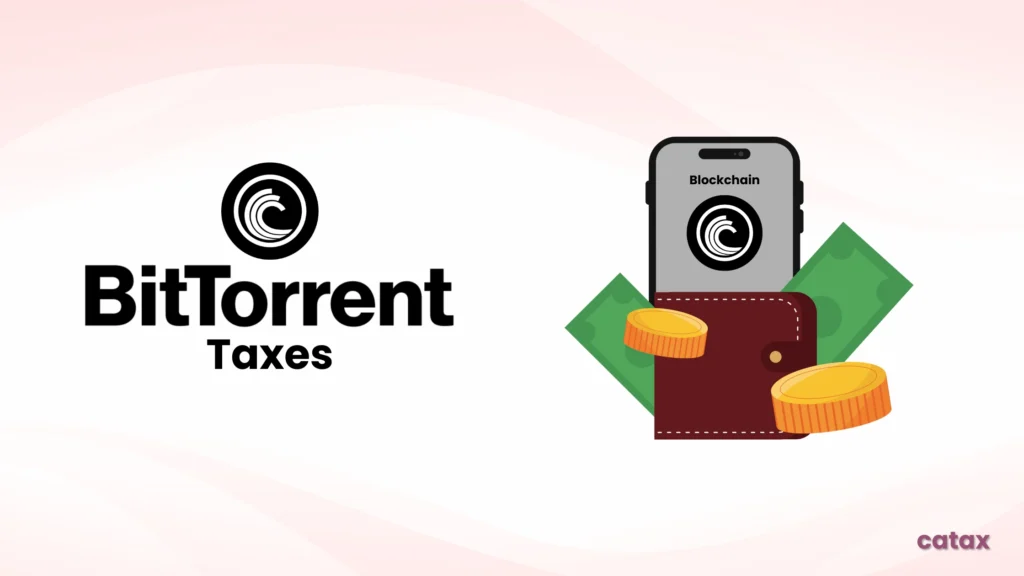Cryptocurrency tax laws vary across countries, and Ethereum (ETH) transactions may be subject to taxation depending on local regulations. Whether you buy, sell, trade, or stake ETH, it is important to understand how tax authorities classify these activities and how they impact your tax obligations.
This guide provides a simplified breakdown of how Ethereum (ETH) is taxed and what you need to do to stay compliant.

How to Connect Your Ethereum Wallet to Catax
To easily track your Ethereum (ETH) transactions and calculate taxes, you can connect your wallet to Catax. Here’s how:
- Open your Ethereum wallet or block explorer (such as MetaMask, Trust Wallet, Ledger, or any other supported wallet).
- Search and copy your public wallet address.
On Catax:
- Log in to catax.app.
- Click Integrations from the left menu.
- Select Chain and search for Ethereum Wallet.
- Paste your public address and click Connect.
Once connected, Catax will track your ETH transactions and help you calculate your taxes accurately.
Do You Have to Pay Taxes on Ethereum (ETH) Transactions?
Yes, in most countries, Ethereum transactions are taxable. Governments typically classify cryptocurrencies as capital assets, property, or income, depending on how they are used.
Taxable Ethereum Transactions
- Selling ETH for a profit – If you sell Ethereum at a higher price than you bought it, the profit is subject to capital gains tax.
- Trading ETH for another cryptocurrency – If you exchange ETH for Bitcoin, Solana, or any other crypto, this may be considered a taxable event.
- Earning ETH through staking or rewards – Some countries tax staking rewards as soon as you receive them, while others tax them only when you sell.
- Using ETH to buy goods or services – Spending Ethereum on purchases can trigger capital gains tax if the value of ETH has increased since you bought it.
Since tax laws differ by country, it’s essential to check how your government treats Ethereum transactions.
Can You Deduct Trading Fees and Other Costs?
Many traders wonder if they can deduct gas fees, transaction costs, and exchange fees from their taxable income. The answer depends on your country’s tax regulations.
Some countries allow deductions for:
- Trading fees paid to crypto exchanges.
- Gas fees for sending Ethereum transactions.
- Security and custody expenses (e.g., hardware wallets, multi-signature protection).
Other countries only allow deductions for the cost of buying ETH, meaning you can subtract the purchase price from the selling price but not additional expenses.
Review your local tax guidelines before filing your return to understand what deductions you can claim.
How Is Staking Income Taxed?
If you earn Ethereum (ETH) through staking, you may need to pay taxes on your rewards.
Countries tax staking rewards in two ways:
- As income tax – Some governments tax staking rewards as soon as they are received, just like a salary or rental income. The tax rate depends on your income bracket.
- As capital gains tax – Other countries tax staking rewards only when you sell or trade them, meaning you won’t owe tax until you dispose of the earned ETH.
To avoid unexpected tax bills, check your country’s tax policies on staking rewards.
Does Holding Ethereum (ETH) Longer Reduce Taxes?
The tax rate on Ethereum profits may depend on how long you hold ETH before selling it.
Here are the common tax structures used worldwide:
- Short-term holdings (less than one year) – Many countries tax ETH gains at a higher rate if you sell within a year of buying it.
- Long-term holdings (more than one year) – Some governments offer lower tax rates on crypto gains if you hold ETH for over a year.
- Flat tax rates – Some countries apply a fixed tax rate on all crypto gains, regardless of how long you held the asset.
Knowing how your country taxes long-term vs. short-term holdings can help you plan your investment strategy.
How to Handle Ethereum (ETH) Losses for Tax Benefits?
Not all trades result in profit, and if you sell Ethereum at a loss, you may be able to use that loss to reduce your tax burden.
Here’s how some countries handle crypto losses:
- Loss offsets – Some countries allow you to subtract losses from your taxable profits, meaning you only pay taxes on net gains.
- Loss carryforward – If you don’t have enough gains this year, some countries let you carry forward losses to future years to offset future profits.
- Limited deductions – Some jurisdictions do not allow loss deductions for crypto at all.
Keeping detailed transaction records will help you accurately report losses and take advantage of any deductions allowed.
How to Stay Compliant with Ethereum (ETH) Tax Regulations?
Many governments are increasing cryptocurrency regulations, making tax compliance essential. To avoid penalties:
- Understand how your country classifies and taxes Ethereum transactions – Capital gains, income, or business revenue.
- Verify whether you can deduct trading fees, staking rewards, and other expenses – Different countries have different rules on deductions.
- Maintain detailed records of every Ethereum (ETH) transaction – This includes buying, selling, trading, staking, and spending ETH.
- Consult a tax professional if needed – If you’re unsure about your tax obligations, seeking expert advice can help you comply with local laws.


